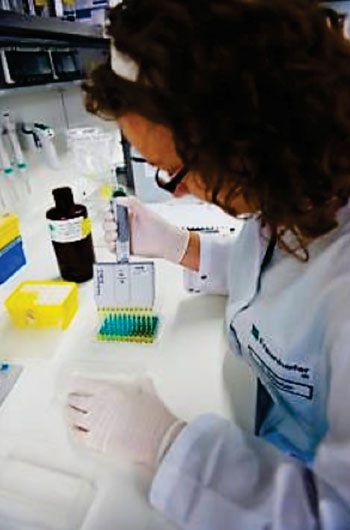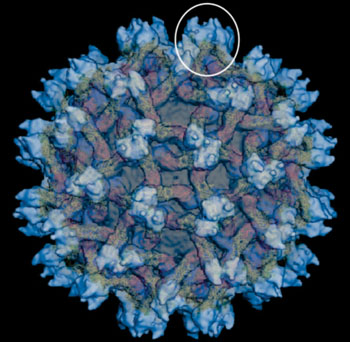Novel Immunoassay Developed to Diagnose Dengue
By LabMedica International staff writers
Posted on 17 Jan 2016
Until now, it has been difficult to diagnose whether someone is suffering from dengue fever or whether they have contracted another flavivirus, such as yellow fever, West Nile virus, or Tick-borne encephalitis virus (TBEV). Posted on 17 Jan 2016
Although there are already tests on the market, but none of them can tell the difference between these individual flaviviruses and if a definitive diagnosis is required, a sample of the patient's blood has to be sent to a high-security laboratory for analysis.
Scientists at the Fraunhofer Institute for Cell Therapy and Immunology (Leipzig, Germany) have developed a definitive antibody test for Dengue virus. Conventional antibody tests are performed by the health professional who draws the patient's blood. If infected with the Dengue virus, the blood will contain specific antibodies produced by the body to attack the intruder. The laboratory staffer then applies the blood to a test platform with dengue antigens that systematically bind with these antibodies. If, after a set reaction time, antibodies are found on the platform, the physician will assume that the patient has been infected with the Dengue virus. The catch is that, although the antigens bind with the antibodies according to the lock and key principle, they almost always do so at the same site as all other flaviviruses. This means that, even when the test is positive, no one can say for sure that it is actually a case of dengue.
The scientists hope that their test will hit the market around one year from now. In a further step, they are working on ways to differentiate between the four strains of the dengue pathogen. This could be an important breakthrough: Anyone who has survived a dengue-related illness has then acquired immunity against that specific pathogen, but when it comes to the other three strains, that person is at even greater risk. This is because the antibodies they produced to combat the first bout of dengue fever actually help the new virus to spread and make it much harder for that person to recover.
Dr. Sebastian Ulbert, Head of the Working Group on Vaccine Technologies, said, “We've succeeded in developing the first ever antibody test for dengue infections that is capable of distinguishing between dengue and other flaviviruses. Since our test is also based on detecting antibodies, it's just as cheap and easy to run as its conventional counterparts. Our test system has the potential to differentiate between the four viral strains.” The new method can easily be integrated into existing test setups and at no extra cost to manufacturers.
Related Links:
Fraunhofer Institute for Cell Therapy and Immunology
















